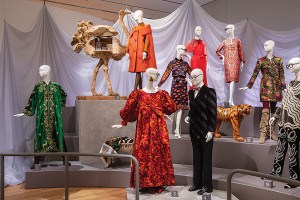Q&A with Dick Flavin, Poet Laureate of the Boston Red Sox

Photo Courtesy Harper Collins
Dick Flavin is a name familiar to many Bostonians. The Quincy native and Massachusetts Broadcasters Hall of Fame inductee appeared as a satirist on WBZ-TV for 14 years, once served as Mayor Kevin White’s press secretary, and can be heard bellowing lineups over the Fenway Park loudspeakers at two dozen or so games each year.
Nowadays, he’s the official poet laureate of the Boston Red Sox. With a collection of his poetry titled Red Sox Rhymes: Verses and Curses due out July 14, Flavin spoke with Boston magazine—calling from a boat en route to Nantucket, no less—on the ebb and flow of Sox fandom, who might be scribbling stanzas in the dugout, and what concession stand the 79-year-old frequents at America’s most beloved ballpark.
BOSTON MAGAZINE: How did you first begin blending poetry with baseball?
DICK FLAVIN: Way back in the very beginning, I was born a Red Sox fan and baptized a Catholic—that’s about the order of things. I discovered when I was in grammar school “Casey at the Bat,” and just fell in love with it. I followed that along all throughout school. I started reading and memorizing the great poems that have meant to be recited: the Robert Service stuff, the [Rudyard] Kipling stuff, that sort of thing. And when I got into television, I found that if I did things in rhyme, people would pay attention and it’d be memorable.
The first baseball one that I did, I took a car trip with Dom DiMaggio and Johnny Pesky to visit Ted Williams in 2001, when Ted was very, very sick. In fact, he was dying. So I get down there, and I figure, “Gee, I need to do something to justify my presence here with all these mythic heroes of mine.” So I did a rewrite of “Casey at the Bat” and made it “Teddy at the Bat,” which is in the book here. And I thought that would be the end of it, then word got out back in Boston that we had done this trip, and I kept getting ask to do “Casey at the Bat” and did it more and more. Then I started doing more and more things on the Red Sox because I was so caught up in them and always have been.
Which aspect of the game inspires you most?
The conversational aspect, that there is time between pitches to discuss the situation, commiserate about it. It’s a great conversational sport.
Is there one Red Sox team in particular that especially inspired you?
The first Red Sox team that I can remember was the ’46 team when I was just a kid. That’s the one that I come back to most. But you talk about the ’75 team and the ’78 team, that pennant race was terrific—the Red Sox were way ahead, then fell out of it, then came back in the last week to force the playoffs. Of course, ’67 was magical. There are just so many memories that you have. I think the great aspect about baseball is that it’s about the next game that’s important. It’s great to have all these memories and all that, but I’m wondering what’s going to happen Tuesday night.
Is there anyone on this year’s team you suspect writes poetry?
[laughs] On this team? God, John Farrell could write some dirges, I guess. I don’t know. There isn’t a lot poetic about this gathering. Are you familiar with Marty Nolan? He was a great editor for the Globe. He’s out in San Francisco now. He famously said, after the ball went through Buckner’s legs in 1986, “The bastards killed my father. Now they’re coming after me.”
What’s your favorite poem in this collection?
My favorite poem, I think, is “Long Live Fenway Park,” about the ghosts of Fenway Park that are out on that field. I can’t walk into that park without getting a sense of Carl Yaz, Dom DiMaggio, Freddy Lynne, and Luis Tiant—all of these people that we’ve seen over the years. My first game at Fenway Park was 70 years ago this year, and it never gets old. Walking into that park never gets old. And I’m in that park all the time.
So what’s your go-to ballpark food?
I’m a hot dog guy. With mustard and relish. I can’t understand the people who put ketchup on hot dogs.
Flavin’s book Red Sox Rhymes: Verses and Curses is available July 14.


